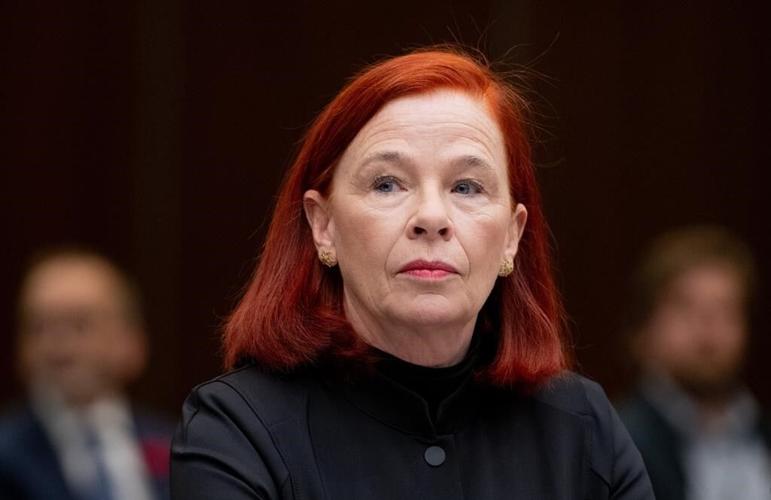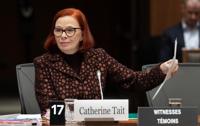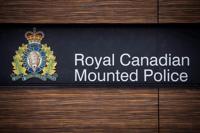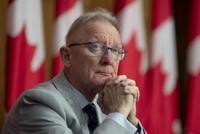OTTAWA - The president of CBC and Radio-Canada signalled Tuesday that she will recommend bonuses are rolled out to executives this year, despite plans to cut 10 per cent of the national broadcaster's workforce.
Catherine Tait told the House of Commons heritage committee that it's ultimately up to the board of directors to determine who gets bonuses,starting at the end of March.
She didn't say whether she would be a recipient of such bonuses.
The broadcaster announced in December that it was cutting 600 jobs and allowing 200 more vacancies to go unfilled, along with $40 million in cuts to productions, saying it aimed to head off a projected $125-million shortfall in the coming fiscal year.
Already about 100 positions have been cut, including about 50 on the CBC side, about 40 on the Radio-Canada side, along with 10 corporate positions, said Shaun Poulter, executive director of strategy public affairs and government relations at CBC/Radio-Canada.
The corporation's bonus structure is merit-based and they are only provided to those employees who meet certain goals, Tait said.
More than 1,100 employees who are managers, executives or are compensated in certain pay bands are currently part of the incentive pay program, she said.
Tait wouldn't say if she would opt out of the program herself, or reject a bonus, in light of the situation facing employees and walked away from reporters inquiring. Instead, Poulter stepped in to answer questions.
"Canadians are just looking for a signal that (you're) willing to work with the tone of the nation," said Liberal MP Michael Coteau during Tait's testimony.
For the broadcaster to announce job cuts in December after paying out $15 million in bonuses last March is "hard to stomach," Coteau said.
"What most Canadians feel is a strong support for CBC and Radio-Canada," NDP MP Peter Julian said Tuesday.
"And the idea that we would have bonuses at a time of cuts to vital services just doesn't make sense."
CBC documents released under access-to-information law show more than $99 million in bonuses was awarded to employees between 2015 and 2022.
Coteau noted that Tait could direct the board to reconsider its bonus structure given the new financial reality.
"I'll consider all scenarios," Tait said. "However, we have a program in place. These are not frivolous awards given at Christmas time."
Pressed by Conservative heritage critic Rachael Thomas to specify whether she would recommend bonuses to the board, Tait said she would if employees "achieve their targets" for the current fiscal year, when no deficit was posted.
The committee agreed in a report to the House of Commons before Tait's appearance that it would be inappropriate to grant executive bonuses in light of the looming cuts. But the government has not asked the public broadcaster to hold back bonuses, Poulter said.
Members of Parliament have no sway over how the independent broadcaster spends its money ã something Tait pointed out in her opening remarks.
Taleeb Noormohamed, parliamentary secretary to the heritage minister, told Tait that some of her responses during her two-hour testimony came off as "callous and cold" to the public. And that "what people heard you say is it doesn't matter cuts are happening, we're still giving bonuses," he said.
"I can understand people's concerns, of course I can," Tait said.
But she said the $15 million in bonuses handed out last year is small compared to the public broadcaster's $950-million payroll.
In the 2022-23 fiscal year, CBC/Radio-Canada's annual report shows it received nearly $1.3 billion in government funding, with another $515 million coming in through other revenue such as advertising.
Despite this, the public broadcaster faces "chronic underfunding," said Tait, as it navigates rising costs of operations and productions and declines in revenue, particularly in Quebec.
Part of that is due to the federal government ending the $21-million financial relief package it gave to CBC each year during the COVID-19 pandemic, Tait said.
CBC/Radio-Canada was also asked to budget for a 3.3-per-cent cut, said Poulter. However, Canadian Heritage Minister Pascale St-Onge has previously said final decisions have not been made regarding the public broadcaster's funding.
This report by üСÜꪤüýò¿Øéóæòêü was first published Jan. 30, 2024.










































